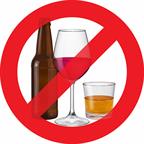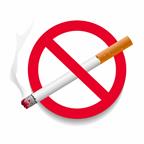Community-Acquired Pneumonia, Adult
Pneumonia is a lung infection that causes inflammation and the buildup of mucus and fluids in the lungs. This may cause coughing and difficulty breathing. Community-acquired pneumonia is pneumonia that develops in people who are not, and have not recently been, in a hospital or other health care facility.
Usually, pneumonia develops as a result of an illness that is caused by a virus, such as the common cold and the flu (influenza). It can also be caused by bacteria or fungi. While the common cold and influenza can pass from person to person (are contagious), pneumonia itself is not considered contagious.
What are the causes?
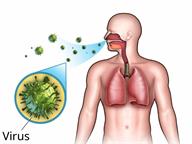
This condition may be caused by:
What increases the risk?
The following factors may make you more likely to develop this condition:
- Being over age 65 or having certain medical conditions, such as:
A long-term (chronic) disease, such as: chronic obstructive pulmonary disease (COPD), asthma, heart failure, diabetes, or kidney disease.
A condition that increases the risk of breathing in (aspirating) mucus and other fluids from your mouth and nose.
A weakened body defense system (immune system).
Having had your spleen removed (splenectomy). The spleen is the organ that helps fight germs and infections.
Not cleaning your teeth and gums well (poor dental hygiene).
Using tobacco products.
Traveling to places where germs that cause pneumonia are present or being near certain animals or animal habitats that could have germs that cause pneumonia.
What are the signs or symptoms?
Symptoms of this condition include:
A dry cough or a wet (productive) cough.
A fever, sweating, or chills.
Chest pain, especially when breathing deeply or coughing.
Fast breathing, difficulty breathing, or shortness of breath.
Tiredness (fatigue) and muscle aches.
How is this diagnosed?
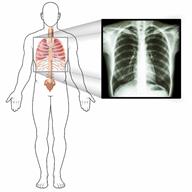
This condition may be diagnosed based on your medical history or a physical exam. You may also have tests, including:
How is this treated?
Treatment for this condition depends on many factors, such as the cause of your pneumonia, your medicines, and other medical conditions that you have.
For most adults, pneumonia may be treated at home. In some cases, treatment must happen in a hospital and may include:
- Medicines that are given by mouth (orally) or through an IV, including:
Antibiotic medicines, if bacteria caused the pneumonia.
Medicines that kill viruses (antiviral medicines), if a virus caused the pneumonia.
Oxygen therapy.
Severe pneumonia, although rare, may require the following treatments:
Mechanical ventilation.This procedure uses a machine to help you breathe if you cannot breathe well on your own or maintain a safe level of blood oxygen.
Thoracentesis. This procedure removes any buildup of pleural fluid to help with breathing.
Follow these instructions at home:
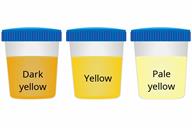
Medicines
-
Take over-the-counter and prescription medicines only as told by your health care provider.
-
Take cough medicine only if you have trouble sleeping. Cough medicine can prevent your body from removing mucus from your lungs.
-
If you were prescribed antibiotics, take them as told by your health care provider. Do not stop taking the antibiotic even if you start to feel better.
Lifestyle
-
Do not drink alcohol.
-
Do not use any products that contain nicotine or tobacco. These products include cigarettes, chewing tobacco, and vaping devices, such as e-cigarettes. If you need help quitting, ask your health care provider.
-
Eat a healthy diet. This includes plenty of vegetables, fruits, whole grains, low-fat dairy products, and lean protein.
General instructions
-
Rest a lot and get at least 8 hours of sleep each night.
-
Sleep in a partly upright position at night. Place a few pillows under your head or sleep in a reclining chair.
-
Return to your normal activities as told by your health care provider. Ask your health care provider what activities are safe for you.
-
Drink enough fluid to keep your urine pale yellow. This helps to thin the mucus in your lungs.
-
If your throat is sore, gargle with a mixture of salt and water 3–4 times a day or as needed. To make salt water, completely dissolve ½–1 tsp (3–6 g) of salt in 1 cup (237 mL) of warm water.
-
Keep all follow-up visits.
How is this prevented?
You can lower your risk of developing community-acquired pneumonia by:
- Getting the pneumonia vaccine. There are different types and schedules of pneumonia vaccines. Ask your health care provider which option is best for you. Consider getting the pneumonia vaccine if:
You are older than 65 years of age.
You are 19–65 years of age and are receiving cancer treatment, have chronic lung disease, or have other medical conditions that affect your immune system. Ask your health care provider if this applies to you.
Getting your influenza vaccine every year. Ask your health care provider which type of vaccine is best for you.
Getting regular dental checkups.
Washing your hands often with soap and water for at least 20 seconds. If soap and water are not available, use hand sanitizer.
Contact a health care provider if:
-
Your shortness of breath becomes worse.
-
Your chest pain increases.
-
Your sickness becomes worse, especially if you are an older adult or have a weak immune system.
-
You cough up blood.
These symptoms may be an emergency. Get help right away. Call 911.
Summary
-
Pneumonia is an infection of the lungs.
-
Community-acquired pneumonia develops in people who have not been in the hospital. It can be caused by bacteria, viruses, or fungi.
-
This condition may be treated with antibiotics or antiviral medicines.
-
Severe pneumonia may require a hospital stay and treatment to help with breathing.
This information is not intended to replace advice given to you by your health care provider. Make sure you discuss any questions you have with your health care provider.
 This condition may be caused by:
This condition may be caused by: This condition may be diagnosed based on your medical history or a physical exam. You may also have tests, including:
This condition may be diagnosed based on your medical history or a physical exam. You may also have tests, including:
